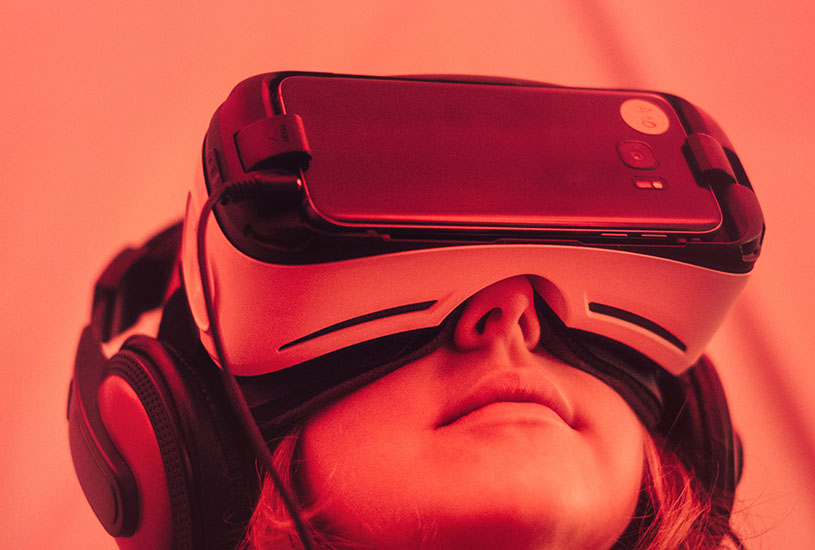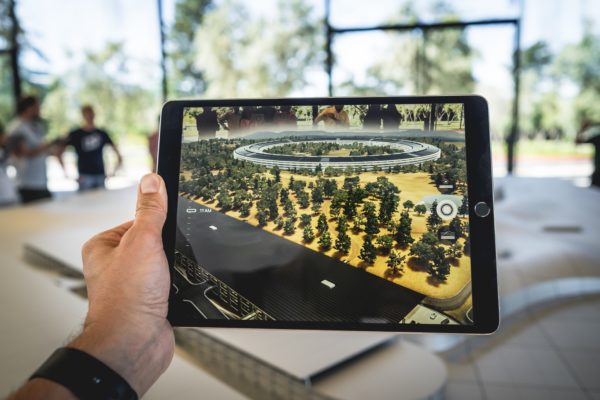A partnership with EON Reality marks the next step in Deakin’s Virtual Reality research.
The recent release of the Oculus Rift Virtual Reality (VR) Headset – giving consumers access to their own affordable, home-based VR systems – marked a new milestone in the rapid rise of VR technology.
Thanks to a new partnership, Deakin University looks likely to be at the forefront of global VR research, with the University teaming up with EON Reality Inc – the world’s leading VR and Augmented Reality content developer.
Deakin and EON are currently establishing in Victoria the first Interactive Digital Centre (IDC) in the Asian region. Co-investments in the hub and contributions from EON Reality will be in excess of $13 million.
The partnership will complement Deakin’s unique VR Cave Automated Virtual Environment (CAVE), recently completed in the CADET building at Waurn Ponds. This immersive environment allows users to visualise scenarios in high resolution 3D, with full peripheral vision, and use their hands to touch and feel an object through haptics technology – all before the creation of any physical prototype.
According to the CAVE designer, Deakin mechatronics whiz Dr Ben Horan, VR is the biggest development in technology since the Internet and the timing is perfect for Deakin to team up with EON.
[testimonial_text]The potential of VR is practically limitless, Whether it be developing virtual prototypes for buildings or aircraft, providing virtual training scenarios for health care providers or sportspeople, or developing new games for the entertainment industry, VR is likely to transform the way we live over the next decade.[/testimonial_text]
[testimonial_picture name=”Dr Ben Horan” details=”Senior Lecturer, School of Engineering”]
[/testimonial_picture]
He noted that investors around the world are targeting VR software and tech companies. “A large proportion of money invested now by Silicon Valley is going into VR. For instance, Facebook bought Oculus Rift for $2 billion in 2014,” he said.
Deakin and EON are currently developing several joint research projects, including investigating the use of VR to improve medical training that complements “real” experience without any risk to patients. Dr Horan’s team, working with collaborators in the School of Nursing and Midwifery, has already patented a VR simulator for training midwives.
In another project, the team have created a 3D VR “walk through” for the Australian company Flavourtech, which manufactures flavour extractor machines for the global market. Potential customers anywhere in the world can now “walk through” the machinery from any internet-connected device, without requiring any specific hardware.
“The partnership with EON will allow Deakin to exploit our research strengths by leveraging off EON’s experience in taking VR to the consumer – bridging the gap between academia and industry,” said Dr Horan. “EON is very progressive and responsive – always pushing the boundaries of what can be achieved.”
The IDC Hub will offer three new Deakin courses: a Graduate Diploma of Augmented and Virtual Reality, Master’s degree in IT (AR/VR) and Master’s degree of IT (Professional), with students having access to industry projects through EON’s global customers.
Francis Galbally, Chairman of EON Reality Australia, added that the partnership will help to ensure there are sufficiently trained VR and AR developers to meet market demands and “EON Reality Australia will be employing many of those newly skilled graduates.”
“EON Reality has already developed training programs for leading Australian mining companies and we see a massive opportunity in both education and industrial applications, due to the cost savings in training, the faster learning and the greater knowledge retention that VR/AR can provide,” Mr Galbally said.



